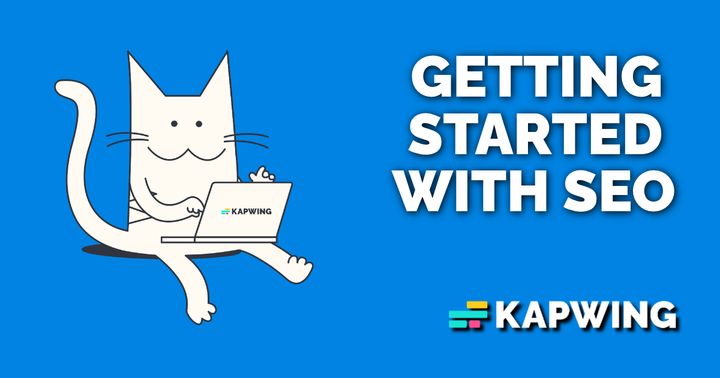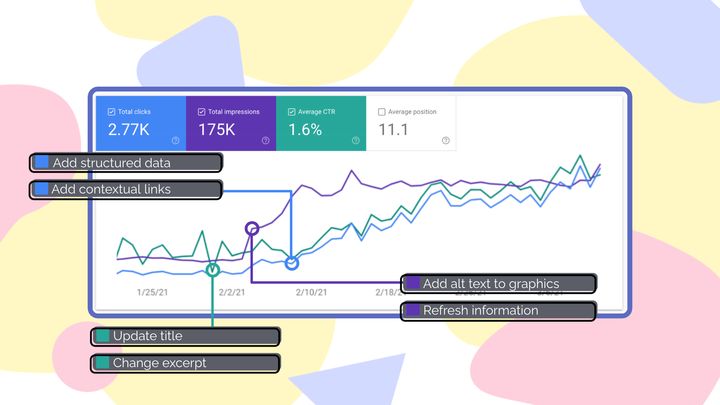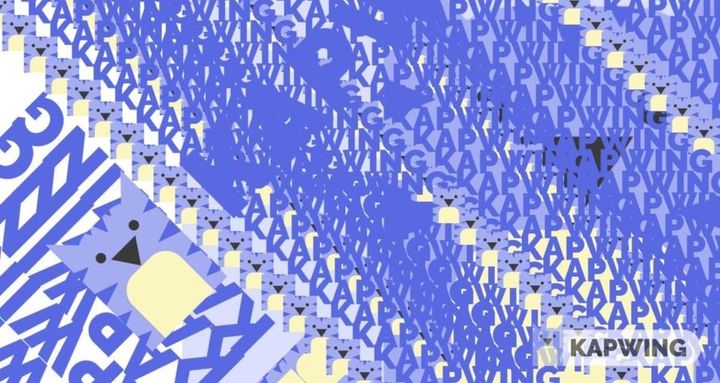Google removed our website from search because it uses youtube-dl

Update: Google accepted our DMCA counter notice and reinstated all 317 Kapwing webpages that they took down. In the week that the takedown was in effect, our website traffic was down 30%.
A week ago, we received an email that every website owner dreads - a notification of a DMCA takedown request that has resulted in our website being removed from Google Search. In this email, Google summarized the takedown request (which can be viewed here) which accuses our company, Kapwing, of being "circumvention software" that circumvents Youtube's "rolling cipher".

The DMCA takedown request has resulted in over 300 of our pages being removed from Google Search (including this blog you're reading right now!) and currently, even if you search for kapwing on Google, kapwing.com does not show up in the results.
In this post, I'll explain what we build as a company, why we think the takedown request was submitted, and why we feel that the request is unmerited.
I'm also writing this post as a cry for help - we haven't heard back from Google and currently, our small team's hard work of the last 5 years has essentially been erased from the internet, with no path to resolution.
What is Kapwing?
Kapwing is an online content creation product. Our product is mainly used for editing video, adding subtitles, and repurposing content from one platform to another. We are a Series A stage startup and from the beginning, we've always done our best to build an ethical and sustainable online business. Since we launched in 2018, we've helped millions of creators edit their own content and adapt it to best fit every new platform.

We're a fully featured platform that allows creators to resize content, add text, edit video clips within a timeline, and much, much more - all within an online interface that doesn't require downloading or installing any software.
I write this all to express that we are in no way setting out to build circumvention software, key generators, or media decryption programs. We have always tried our best to build a reputable business that serves creators in the best way possible.
Why did we get a DMCA takedown request?
The DMCA takedown request states the following:
To our knowledge, the URLs indicated provide access to a service (and/or software) that circumvents YouTube's rolling cipher, a technical protection measure that protects our members' works on YouTube from unauthorised copying/downloading circumvention mechanism: circumvention software
This language felt familiar to us, and we realized it is the same language that was used when youtube-dl, a popular library that translates urls into direct content links, was taken down from GitHub. We use youtube-dl in a feature that allows a creator to paste a link to their own content and start editing the video itself.

A creator can paste a link to a piece of content that they own, and then start editing the video within our editor. This logic was not implemented by us - essentially the function calls youtube-dl, then passes the output to our editor. This flow allows creators to more easily edit their own videos that are hosted on various places online, whether it was their own domain or popular sites like Imgur, Vimeo, or Youtube. This exact feature is also implemented on popular sites like Streamable and Giphy, where a user can paste a URL and start editing their content:

Though the DMCA request does not say explicitly, we believe that this feature is what the takedown request was initiated - as the exact language of a "rolling cipher bypass" and "circumvention software" was used in the RIAA takedown of youtube-dl.
Why do we think this DMCA takedown request is unfair?
We kept the paste-a-link feature in Kapwing after Github reinstated youtube-dl and the Electronic Frontier Foundation submitted a letter that concluded that this project does not establish a violation of the law. The main reason we feel that this DMCA takedown request is without merit is because precedent has been set, both legally and within other prominent products that implement the exact same feature, that this is not a violation of copyright law. We've written no specific code that allows for circumvention - our feature calls youtube-dl directly and passes the result back to our frontend. We felt that because this library was ruled as not a violation of copyright law, and because the precedent of this type of feature is allowed on many prominent sites on Google Search, that it would be ok to allow this in our product as it greatly helps creators get started.
Even outside of this feature, we as a company always done our best to ensure that we respect copyright holders - at the end of the day, we ourselves serve original content creators. We maintain a strict clause in our terms of service which specifies that users can only use Kapwing to for videos that they have the rights to:
You’re responsible for the content you post. This means you assume all risks related to it, including someone else’s reliance on its accuracy, or claims relating to intellectual property or other legal rights.
By posting content you didn’t create to Kapwing, you are representing that you have the right to do so. For example, you are posting a work that’s in the public domain, used under license (including a free license, such as Creative Commons), or a fair use.
Every user must acknowledge the terms of service when they create a new account on Kapwing. In addition, we maintain an email address - [email protected] - that anyone can reach out to if they believe that someone misused Kapwing’s tools and violated our terms of service, and we have a policy of taking down any content from our cloud servers if we receive information that it violates copyright. We maintain a designated agent in the DMCA Directory (registration number DMCA-1027598) and always respond to issues raised there. This procedure is detailed in our privacy policy.
Beyond this, the DMCA takedown request has been especially devastating for our website due to how far reaching it is, and how many pages it listed (over 300). For example, one of the pages taken down is our EDU page, which does not link to our product at all but rather is a place for teachers and students to apply for paid accounts for free. Other URLs taken down include popular posts from our blog, such as one that discusses product analytics at start ups. We don't understand how pages like this have anything to do with circumvention software - they don't even provide a way to get started with Kapwing at all - and they have all been delisted from Google Search without a way for us to appeal them.
Finally, Kapwing is not a Youtube downloader. If you search for youtube downloader, there are tons of spammy websites that directly allow a user to rip videos off of youtube. It feels unfair that these websites are allowed to rank, while our website, a reputable online video editor, has been removed for completely legitimate queries.

The hardest part of this process is that we don't know exactly why we have been taken down, or what we can do to be restored. We can only speculate that it is due to the paste a link feature, but even this is hard to believe as there has been clear precedent set in the past that this is not in violation of copyright law. Many other (large) sites are allowed to exist with the exact same feature, so we really don't know what we need to fix, if anything.
A cry for help
This post is a cry for help to Google to stand up for smaller web developers who have always tried to do the right thing. This DMCA takedown request has been devastating for our business as it makes it difficult even for our own customers to find our site. We didn't receive advance notice of the take down request, and we weren't given a chance to change or improve our product before it was removed from Google Search. We haven't received any communication or response from Google for how we could address the concerns. We are willing to do whatever it takes to comply with the law - we just wish we knew what it was.
In startups, progress is measured in days and weeks, not years, and for creators to be unable to find us through Google Search for the last week has been heartbreaking for our team, who have always worked hard to build a reliable and ethical product.
We don't have the resources or runway to stand up to every takedown request. If you or anyone you know has a way of getting in contact with Google to help restore our website, we would truly appreciate your help in standing up for a small startup trying to do the right thing.
How We Got our Pages Reinstated on Search
Below, I give the day-by-day timeline of how long it took Google to reinstate our pages. We decided to include this section to help other entrepreneurs know how to successfully re-instate their pages if their website is the target of a bogus DMCA takedown.
tl;dr Fill out Google's counter-notice form for every URL that was removed from Search. This is the fastest way to get your pages back up on Google. In our case, it took about 4 business days for them to review our counter-notice and reinstate the pages.
On Wednesday afternoon, we received the initial takedown notice from Google. That evening, we followed Google's recommended action in response:

As recommended, we sent a lengthy email to the linked email address, [email protected], explaining why the DMCA notice was filed in error. We included a list of all the URLs that were included in the initial request. In response, we received an automated reply:
If you'd like us to process your complaint as it currently is, first make sure that it is complete under the DMCA's guidelines. You can confirm this by replying to this email with: "This notice is complete." We'll process your complaint, but we can process it quicker if you submit it through our web form.
So I replied to the email with "This notice is complete." For good measure, I also filled out the webform, copying each of the 317 links one by one.
The email and web form didn't work. On Friday, two days later, DMCA-agent replied to the email thread asking me to provide more information about my DMCA complaint. They thought I was responding to an existing ticket rather than filing a new ticket. Similarly, the webform linked from this email is the webform for handling DMCA complaints, not counter notices. In both cases, Google is not clearly giving webmasters instructions for appealing a DMCA takedown notice or filing a counter notice.
Thankfully, my cofounder had found the link to the correct form - Google's counter-notice form - in the help center documentation. They shared it with me, and I filled it out, just in case, on Thursday morning. This process was time-intensive as we had to copy each one of the URLs one by one and paste it into a new line. I ended up only submitting the form for 71 of the 371 URLs, since I'd already submitted the response email.
On Sunday, 3 days after submitting the first counter-notice, we finished submitting the form for the remaining 246 pages in three batches.
We also published this blog post on Sunday, which hit the top of Hacker News with almost 400 upvotes.

On Sunday, I also DM'ed @dannysullivan, Google's public search liaison, on Twitter. He responded telling me I should fill out the counter-notice form and that he'd "pinged some people internally on this," referencing this blog post.
On Monday, 6 days after the initial takedown notice (5 days after submitting the counter-notice, including weekends), we received an update from Google that they'd restored access to 71 of the 317 pages. Our counter-notice was approved:
The information you provided creates a factual doubt about whether the material available on your site is a prohibited circumvention tool that enables a user to circumvent a technological protection measure within the meaning of applicable law.
We're still waiting on the other 246 pages, including the Kapwing home page and several landing pages, to be restored on Google Search.
The manual labor required to file a counter-notice is another reason why it's abusive for an agency to file a bulk takedown request on a reputable small business. I think Google should be more diligent about ensuring webmasters get pointed to the correct resources for appealing a takedown, as it had a significant impact on our business over the course of the last week. I shared this feedback with @DannySullivan in our Twitter DMs. He replied:

Hopefully, this explanation helps other reputable webmasters ensure that their web content remains in good standing on search and avoid DMCA takedown abuse.









